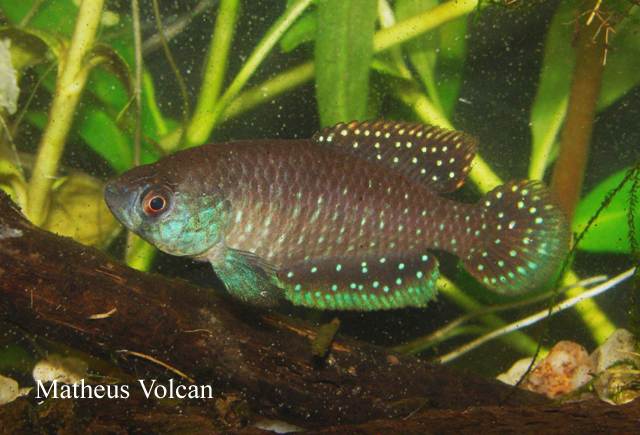| Rivulidae (Rivulines), subfamily: Cynolebiinae |
| 5 cm TL (male/unsexed) |
|
benthopelagic; freshwater, non-migratory |
| South America: Ibicuí and Quaraí (= Cuareim) river drainages, rio Uruguay basin in southern Brazil and northwestern Uruguay. |
|
Dorsal soft rays (total): 16-26; Anal soft rays: 17-25; Vertebrae: 27-29. Can be diagnosed from other species of the Austrolebias alexandri group by the following combination of characters: posterior margin of each pectoral fin in male reaching a vertical between base of second and fifth anal-fin rays (vs. between urogenital papilla and base of second anal-fin ray); origin of dorsal fin either on vertical through anal-fin origin or posterior to it (vs. anterior); and presence of vertical rows of light blue dots on entire flank in larger males (vs. light blue bars) (Ref. 57613).
Description: Dorsal-fin rays 22- 26 in males, 16-18 in females; anal-fin rays 21-25 in males, 17-23 in females. Longitudinal series of scales 26-28; and transverse series of scales 10-12; (Ref. 57613). |
|
|
Vulnerable (VU); Date assessed: 11 December 2020 (Vulnerable) Ref. (130435)
|
| harmless |
Source and more info: www.fishbase.org. For personal, classroom, and other internal use only. Not for publication.
